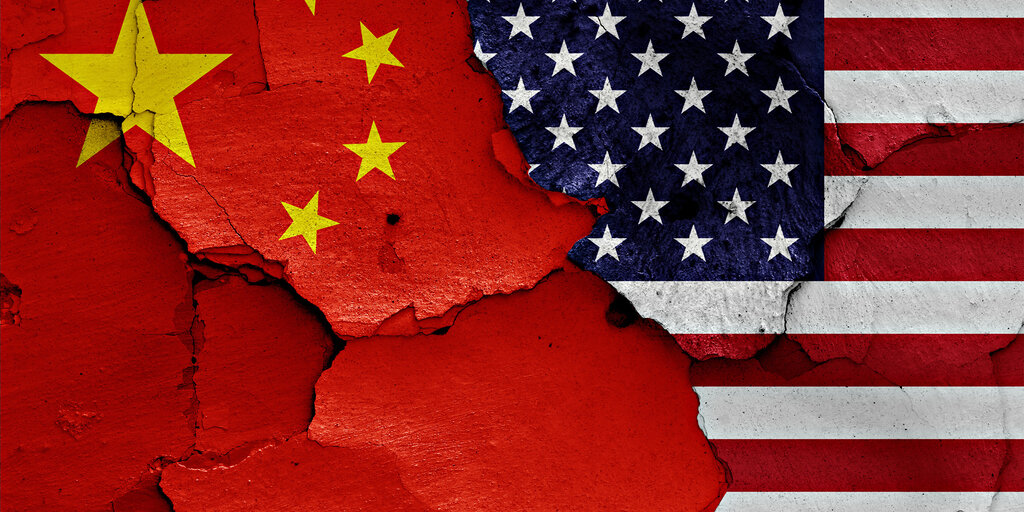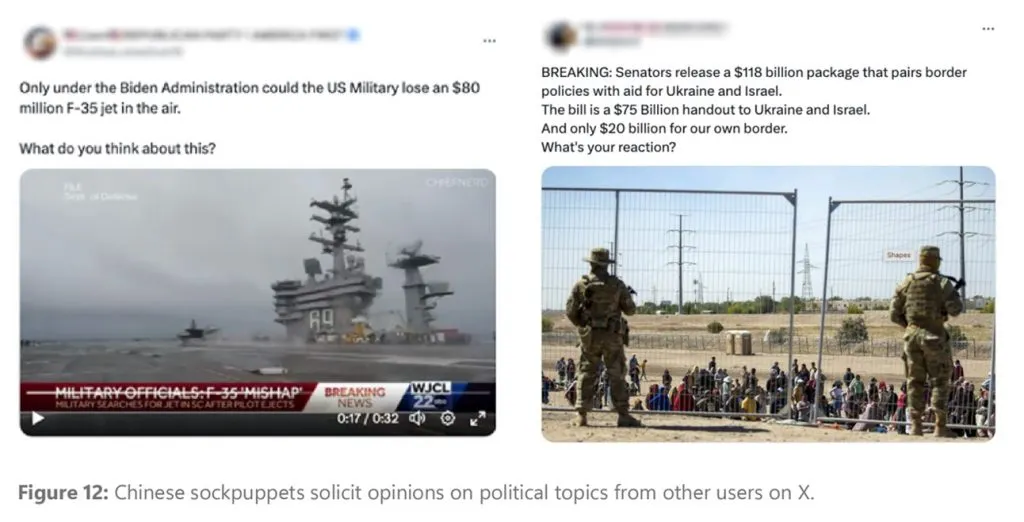
With the U.S. election season in full swing, China is increasing its use of artificial intelligence as part of a broader effort to interfere in U.S. politics, while learning what divides citizens to sow discord, according to Microsoft.
“CCP-affiliated actors have begun to pose controversial questions on controversial domestic U.S. issues to better understand the key issues dividing the U.S. electorate.” warn. The report pointed out that China is also using social media to portray the United States in an ‘unfavorable light.’
The report includes several screenshots of social media accounts soliciting opinions on controversial topics, including AI-generated or manipulated images, and using tactics to gain reach and engagement across a variety of platforms.

“In recent months, the use of Chinese AI-based content has increased in attempts to influence and cause division on a variety of topics in the U.S. and elsewhere,” the report said. These tactics include deepfakes of images and videos as well as written content.
China is also interfering in domestic politics. Microsoft cites posts about a train derailment in Kentucky, wildfires in Maui, and immigration issues at the southern U.S. border. Accounts that encourage people to comment their opinions on major news events are “Chinese puppets,” the report explains.
Microsoft acknowledged that “there is little evidence that these efforts have succeeded in changing public opinion,” but warned that China would likely improve its AI-based propaganda efforts over time.
“China’s growing experiments with augmenting memes, videos, and audio will continue and may prove even more effective in the future,” the report concluded.
In addition to China, Microsoft also called attention to North Korea’s online behavior.
“North Korea continues to prioritize the theft of cryptocurrency funds by conducting software supply chain attacks and targeting perceived national security enemies,” the report said.
AI as a geopolitical weapon
The role of big data and AI in elections is growing. concern About voter privacy; election integrityAnd as political campaigns themselves increasingly utilize data analytics on micro-targeted voters, with tailored advertising and outreach based on detailed voter profiles, there is the potential for undue influence through targeted and personalized messaging.
For example, the 2012 Obama campaign was praised for its sophisticated data work. Identify and mobilize supporters. Likewise, the 2016 Trump campaign. Leverage data on 1.6 million volunteers Organize grassroots efforts.
There have also been controversies surrounding the misuse of voter data for AI-based political research, such as the 2015 breach that allowed Sen. Bernie Sanders’ campaign. Access Hillary Clinton Campaign Data Unauthorized by Cambridge Analytica Facebook user data collection For targeted political advertising.
Regulators are now rushing to establish and oversee rules for the use of AI in elections. Several states in the U.S. have introduced legislation to regulate deepfakes and deceptive AI content. This includes efforts to require disclosure and labeling. President Biden’s Pressure to solve this problem. The European Union (EU) is also implementing this. artificial intelligence lawIt is described as the world’s first comprehensive AI law that includes provisions for the use of AI in elections.
But perhaps the most notable and polarizing effort is the “Protecting Americans from Foreign Enemy Control Applications Act,” which seeks to ban TikTok in the United States.
“The reason TikTok is so successful, the reason it’s so fascinating, is because it knows you better than you know yourself. And the more you use it, the more you learn.” Senator Marco Rubio said During the annual Global Threat Assessment Hearing. “They happen to control a company that owns one of the world’s best artificial intelligence algorithms. “It’s what TikTok uses in this country, it uses data from Americans to basically read your mind and predict what videos you might want to watch.”
But some argue that the most urgent threats come from: distribution Blocks false and harmful content on social media platforms rather than pure AI content creation. Technology companies have signed the following agreements: Adopting measures against misuse of AIHowever, social media regulation appears less clear than in the AI space when it comes to determining who is responsible for containing misinformation and posting it.



